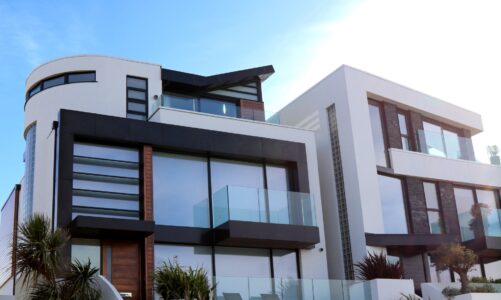Contents
So, you’re buying a home. Of course, it’s important to understand the basics of what you’re looking for and where and how to find it. Damon Becknel, an experienced real estate investor and land developer believes, that once you make an offer and the deal is done, we need to look at what factors will affect your property value.
What is Property Value?
When we talk about value, we mean the market value: the price that an informed buyer is likely to pay for a particular house (or any other type of real estate) in its current condition and location, considering all the variables affecting price. Of course, due to human nature, there are always one or two people out there who are willing to pay ridiculous prices just because they have so much money they simply do not care. This affects everyone else’s values and makes it harder for most home buyers and investors to determine the real value.
Using tax assessor data, we can see that, in general, there are five variables which will affect your property value:
Location
Since people always want to be closer to where things are happening, location is almost always the biggest factor affecting price, followed closely by demand. If the area is desirable (and most areas with lots of businesses and shopping malls with cheap parking qualify as such), prices will be higher than average. If the area is undesirable (like right next door to a sewage treatment plant), down, they go again. Fortunately, you usually have some time before this happens, and no one wants to live next to a sewage treatment plant anyway!
Floor Plan
The layout of the house can have a big impact on price. If there’s more space where people are likely to spend their money (the living room, for example), that will increase value. Many of the homes in the wealthiest neighborhoods have had so many renovations over the years that they don’t even resemble what you can buy brand new anymore, but since they still have huge floor plans and lots of bathrooms, they fetch top dollar! Quality of Construction
If it takes two months to build a brand new home which is very similar to hundreds of others like it right next door, but it takes six months to build something with custom touches like crown molding, wood floors, and copper gutters, then guess which one will sell faster at higher prices? It’s not always about the quality of construction, but more often, it is. If you’re building super cheap, then there are many more corners to cut and things to save money on, which will lower the final price, even if it means that certain areas of your home won’t age as gracefully.
Age of Home
It might sound counterintuitive since newer homes are easier to maintain and offer all kinds of new amenities, but they don’t always get top dollar. That’s because older homes have something called “character,” which many people want in their home. Whether it’s built-in cabinetry or handcrafted beams or high ceilings, buyers like knowing that someone cared enough about this house to make it special (or at least put a lot of work into it). For this reason, many homes have been restored to their former glory, so they need very little done to them before they can go on the market again. If you’re buying an older home, things are usually to be fixed and cleaned up. It will take longer than usual for buyers to look at what you’ve got and decide whether or not it’s worth their money, so be sure you check all the estimates carefully and negotiate well!
Size of Home
You might think that the bigger your house is, the better – after all, more rooms means more space which means more stuff which equals higher value, right? This is only true if people want what you’ve got in those rooms. When we say “size,” we’re referring to how much space you have relative to the average home in your area. For example, live in an area where most people like living in a ranch-style house and yours is 2-stories. It’s probably going to be harder to sell (for less money) than something more comparable to what everyone else wants, which will make it easier for buyers.
Inside Condition
This refers mainly to appliances and floors and countertops and walls – basically, all the things that you can’t easily change later on down the road when you want to raise or lower your price. If someone buys your home, they’re stuck with those items unless they want to take up flooring themselves, which means that even though renovations might increase future value, they will also decrease the current value unless they are done extremely well. The most important thing you can do to increase your property value is to present it in the best way possible so that when people buy, they have no reason to think that anything needs fixing or replacing.
Final Thoughts
Many factors go into determining a property’s value. Some of these factors, like quality of construction or age of the home, are more important than others. Real estate investors and developers need to understand what these factors are to make decisions about their properties that will result in the greatest return on investment.




